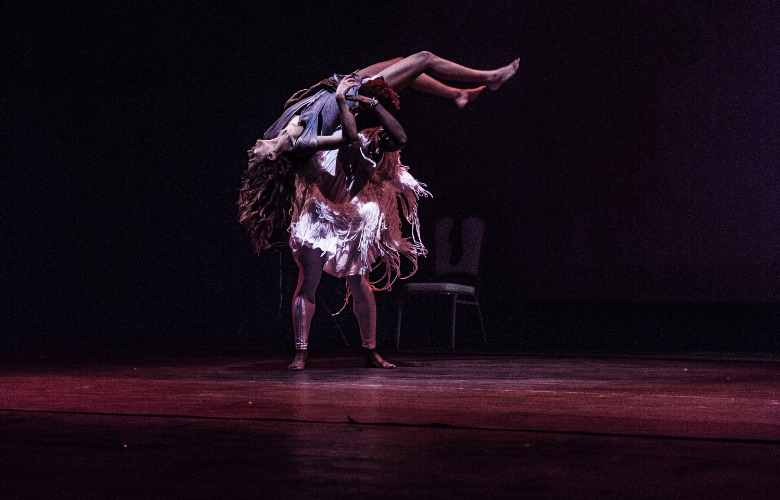
Berlin theatres have recently struggled with the aftermath of #metoo cases which came to light over the past few months. In March 2021, the artistic director of the Berliner Volksbühne, Klaus Doerr, stepped down after ten women officially complained about his unethical conduct towards them. Understandably, this has now led to further inquiries and discussions as to why theatre is a particularly difficult environment when it comes to sexual harassment.
The group of ten women had approached an organization called Themis, which is a safe space to publicly lodge complaints against discriminating and harassing behavior.
They had documented their experiences with the artistic director. His unwanted physical closeness, intensive stares, and inappropriate phone messages.
Furthermore, they also accused Doerr of age discrimination, bullying, and furthering a toxic work environment.
In an interview with the ‘Berliner Zeitung’, two theatre directors shared their thoughts on the subject.
Reasons for this are, amongst others, the hierarchical structure, the dependencies which result from these structures, and the gender ratio. In Germany a good 80% of artistic directors are men. This goes for other artistic and technical management positions as well.
Berlin theatre director Christoph Gosepath pointed out that a risk lies in the general nature of theatre and creation. He said, “The blurring of boundaries between private life and work is precisely one of the pillars of theatre making. To open oneself, show oneself is one of the most important elements of performing. This is why during rehearsals it isn’t unusual to speak about intimate details.”
Add to this the fact that most performances automatically include physical closeness.
For most performances, the performers’ body is the main tool used for expression. During rehearsals as well as during shows, the entire ensemble works together to create an intensity which will leave audiences spellbound. Strong emotions and professionalism are both part of the recipe of success for the production.
Bernd Mottl, another German director stated, “The theatre environment is more difficult than other work environments because unlike in other professions there are no clearly measurable standards of quality. What is artistic talent? It is hard to define. Thus, it can happen that people try to impress each other during rehearsals by being especially charming. It is important to stay alert and aware of potentially difficult situations.”
Themis is conducting an ongoing study. One finding of this study is that there is a form of resigned acceptance towards the intricacies of backstage working life.
Often, theatre people explain this with idealism towards their profession, the flip side of creativity and intensity, etc.
Another aspect of why people don’t speak up is fear.
The organization Themis was founded two and a half years ago. Since then, there were only fourteen official complaints. Eva Hubert, one of the managing directors of Themis says, “Most people don’t want to speak up against their employers because they are afraid of not being considered for future roles.”
The theatre world is a small community where almost everyone knows everyone. This is not just true of Berlin, but of the worldwide theatre and show community as well. And difficulties pertain to both, cast and crew.
Also, most theatres and shows do not have official functions in place for people to safely go to. To speak up for themselves, find support. It is an ongoing problem which I as well have unfortunately had first-hand experiences with.
At one point, working for a large show, I was faced with an extreme case of ongoing sexual harassment. Our department head kept making advances towards people, touched them inappropriately, used sexual language.
I did not know whom to turn to without word getting back to him. I was afraid of repercussions.
When I and several others finally worked up the courage to speak up, we were bluntly told by the company that they would not take any steps against the person who was harassing us. “It’s your responsibility to deal with this yourself,” we were told. “Tell him to stop when he makes advances again.”
Also, as I had feared, the information we had provided was not treated confidentially. Word of our complaints did get back to the person in question. And some of us were faced with repercussions.
Eva Hubert of Themis sees only one way out of the dilemma, “There has to be a climate backstage in which it is natural to be able to voice complaints. It has to be a work environment in which the employer is obligated to follow up on each complaint in a confidential, supportive manner.”
Claire Bournet and ‘Trafic de Styles’ in Paris – an Interview
Guilherme Botelho – Dance and the Quest for Meaning


Liam Klenk was born in Central Europe and has since lived on four continents. Liam has always been engaged in creative pursuits, ranging from photography and graphic design, to writing short stories and poetry, to working in theatre and shows. In 2016, Liam published his first book and memoir, 'Paralian'.
Read Full Profile© 2021 TheatreArtLife. All rights reserved.

Thank you so much for reading, but you have now reached your free article limit for this month.
Our contributors are currently writing more articles for you to enjoy.
To keep reading, all you have to do is become a subscriber and then you can read unlimited articles anytime.
Your investment will help us continue to ignite connections across the globe in live entertainment and build this community for industry professionals.